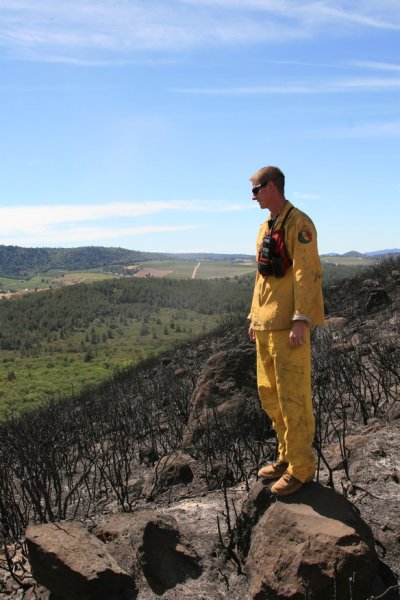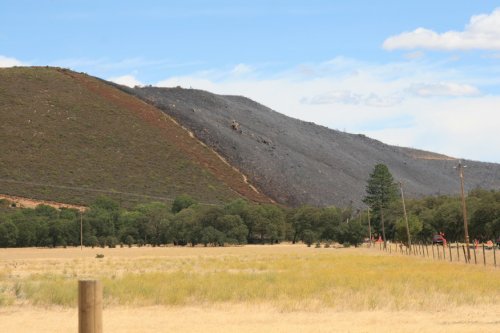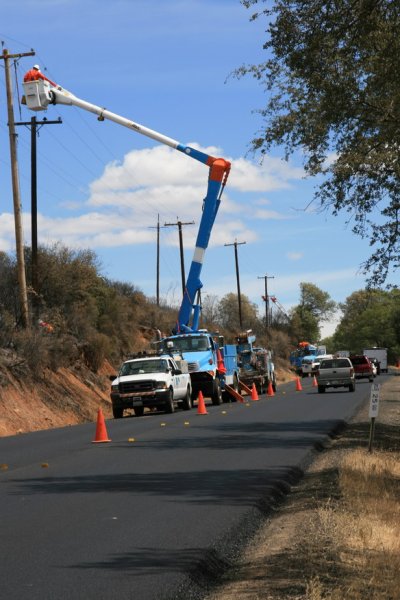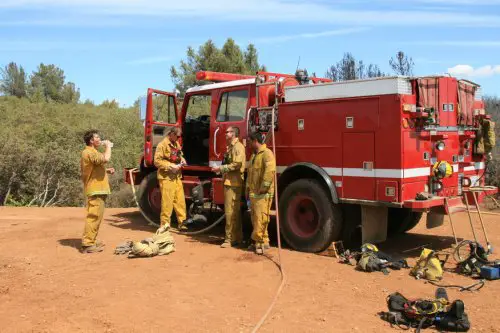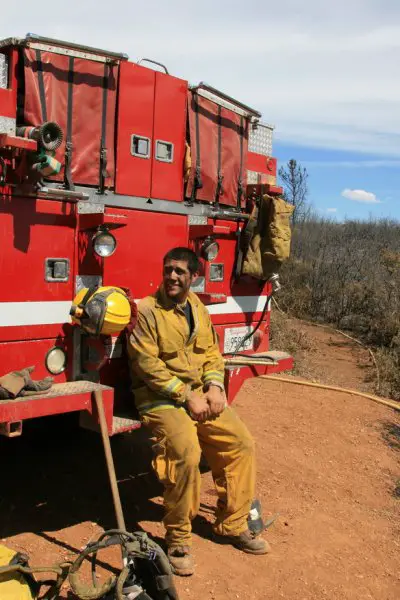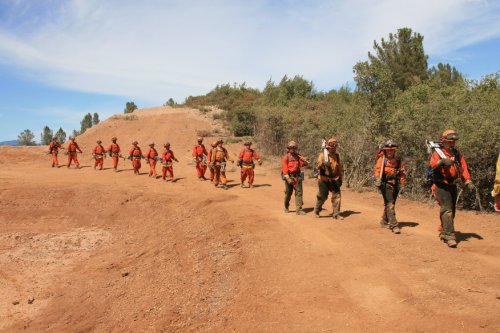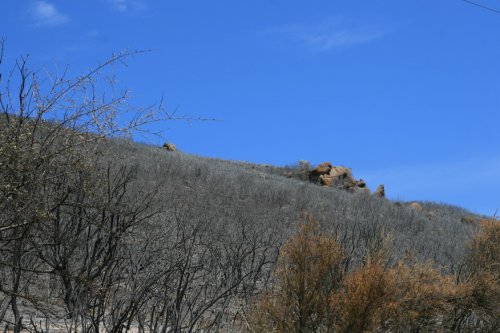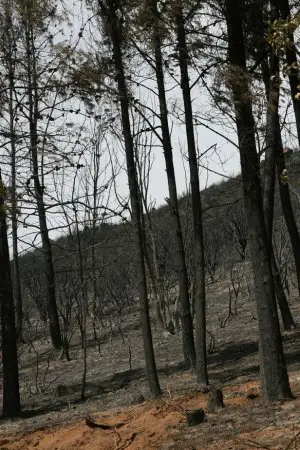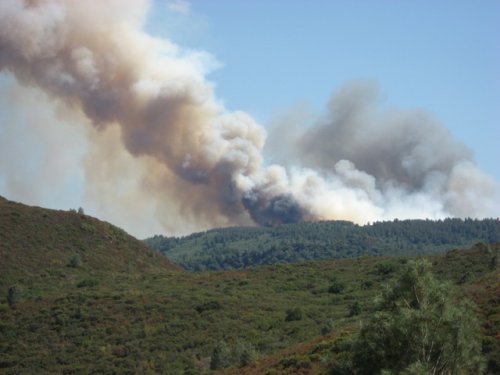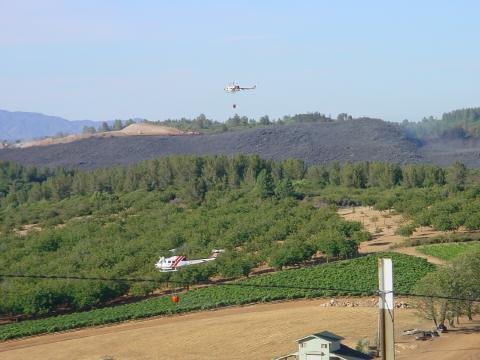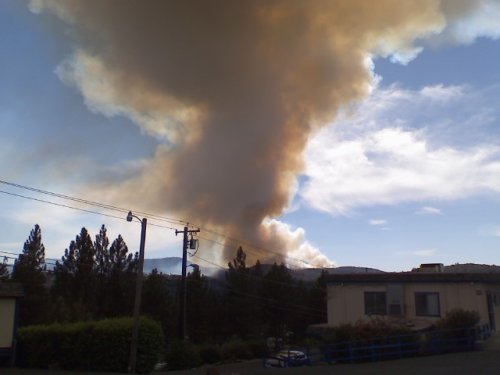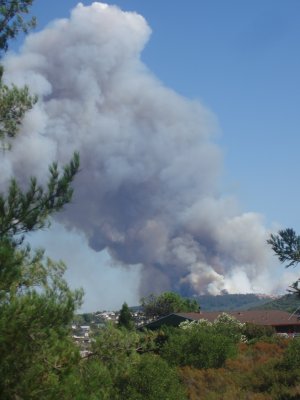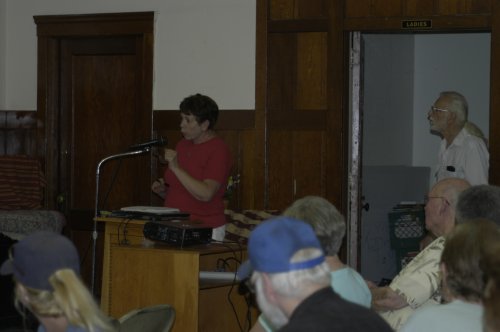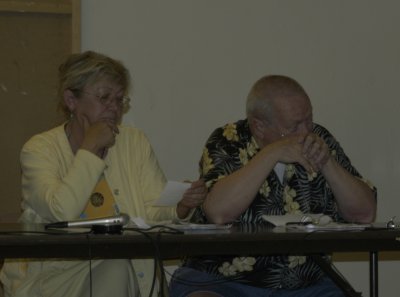- Elizabeth Larson
- Posted On
Air quality district receives $100,000 settlement
Clearlake Cinder Chip Co., the owner of a volcanic cinder mine near Clearlake Oaks, and the mine's operator, BCJ Sand and Rock of Santa Rosa, agreed to settle the dispute with the Air Quality Management District, which new Air Pollution Control Officer Doug Gearhart has been ongoing for more than six months.
The air district's hearing board – chaired by Cameron Reeves, retired county counsel, and including members Nancy Perrin, Lowell Grant and Roger Bakke – voted to accept the stipulated order ending the matter at a Wednesday morning meeting, Gearhart said.
Gearhart said the settlement includes a $100,000 settlement and an agreement to retrofit the operation's diesel engines.
The issue, explained Gearhart, was the failure by the owner and operator to comply with the State Air Toxic Control Measure applying to the mine and requiring stringent diesel engine particulate emissions control.
Clearlake Cinder Chip Co. had received an extension for a variance relating to those standards because they wanted to convert their diesel engines to electric, said Gearhart.
However, at the end of the extension, the line power installation wasn't complete and the mine continued using the diesel equipment. Gearhart said the mine came into violation on Jan. 1.
Curt Abbott, controller for BCJ Sand and Rock, said the settlement also requires that Clearlake Cinder Chip Co.'s owner, Tiburon-based Robin Thomas Corp., must now put operations in BCJ's name.
BCJ Sand and Rock has been operating at the mine since October 2006, said Abbott. They'd been operating under variances in place before they arrived, and said their extraction equipment had been operating to standards since then.
He said Lake County is requiring the equipment have filters added to them to run at the same emission levels as if they were electric engines.
Abbott also stated that Lake County's air standards are more stringent than other counties – such as Sonoma and Butte – where BCJ also operates.
Gearhart, however, said that statement isn't accurate from the air district's perspective. The equipment in question is compliant for portable use but not when stationary, at which point it must meet different standards.
The order's $100,000 settlement amount was calculated based on number of violations, days in violation, and severity of violation, Gearhart said.
Abbott said Robin Thomas Corp. and BCJ have agreed to jointly pay the settlement. "We want to do that because we want to be back in business."
The hearing board previously had adopted an abatement order that Gearhart said effectively closed the business, an action taken after several prior attempts to reach a resolution ended in June. The air district also had initiated a civil process to collect the contested fines.
The abatement order against the mine prevented operation of processing equipment, said Abbott, although BCJ has been able to harvest the red lava rock and take it elsewhere for processing.
He said the red rock is turned into small rock or gravel and sand for uses ranging from highway projects to landscaping.
Abbott said the district made the fine significant enough to make sure the equipment upgrades were done.
The order also requires the mine operation to replace a gross-emitting Caterpillar D8 with a 2006 or newer excavator, complete a toxic risk assessment and maintain stringent dust control, according to Gearhart.
Gearhart said $40,000 of the amount will be used by the mine's owner and operator to purchase and install new diesel particulate filters on mining equipment. Before mining operations can start again, the filters must be on order and the first $20,000 penalty payment must be made.
The remaining $60,000 will go to the air district, which will share the funds with the County Counsel's Office for its assistance with the case. Gearhart said the money will help the air district recoup costs for its time.
In a typical year, fines and penalties only make up about 4 percent of the air district's $600,000 budget, said Gearhart. The settlement will push that percentage higher in the coming fiscal year.
"As far as I know this is the largest fine the district has ever had," said Gearhart.
Most of the air district's fines are for residential burn violations, which he said range between $50 and $100.
"Most people stay in compliance and most industry stays in compliance," he said.
E-mail Elizabeth Larson at This email address is being protected from spambots. You need JavaScript enabled to view it..
{mos_sb_discuss:2}

